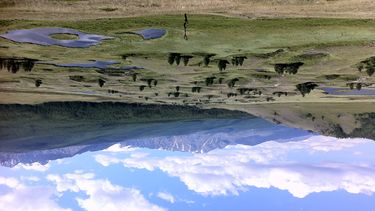The war in the Ukraine may impact our ability to understand ongoing Arctic change, according to a new study.
Professor Terry Callaghan CMG, from the School of Biosciences, is one of the co-authors of a recent study published in Nature Climate Change which highlights the potential implications the conflict may have on our current and future perspective over one of the world’s most sensitive and dynamically changing regions. Changes in the Arctic have the potential to amplify climate change further south.
Since invading the Ukraine on 24 February 2022, collaborations between Russians scientists and Western scientists have been severely challenged.
Russia is geographically the largest Arctic nation and is also one of eight nations within the Arctic Council, an intergovernmental forum for coordinated activities across the Arctic countries. However, since the war began, the work of the Arctic Council was first put on hold, and as currently resumed, it is only in part and without Russia.
Although many of the key indicators of Arctic climate change can be estimated remotely, much of the understanding of Arctic change is based on in situ data measured on the ground at research stations.
INTERACT, a network of research stations in the Arctic - of which Professor Callaghan is the Founder and Science Coordinator of - previously collected data from 94 research stations. However, 21 Russian research stations are now no longer able to feed in.
The study found about half of the INTERACT stations located in the boreal zone are lost with the exclusion of Russia and with that, Siberia’s extensive taiga forest is no longer represented in the network.
Researchers said the potential loss of Russian research stations could adversely affect the capacity to track global ecological and environmental responses to climate change including permafrost degradation, vegetation shifts, and carbon emissions.
The study found the overall ability to monitor the status and trajectory of the Arctic biome may be severely limited over the foreseeable future.
Professor Callaghan said: “INTERACT has now quantified the resulting bias in our understanding of Arctic ecosystems – and the bias is serious.
“We are a network of friends with a globally important role: we are in the right place (but less so now), at the right time and with the right skills to observe, understand and respond to rapid environmental changes but our recent study shows we need to restore and even extend our previous geographical coverage of the North through science diplomacy to better protect the Arctic and beyond.”

